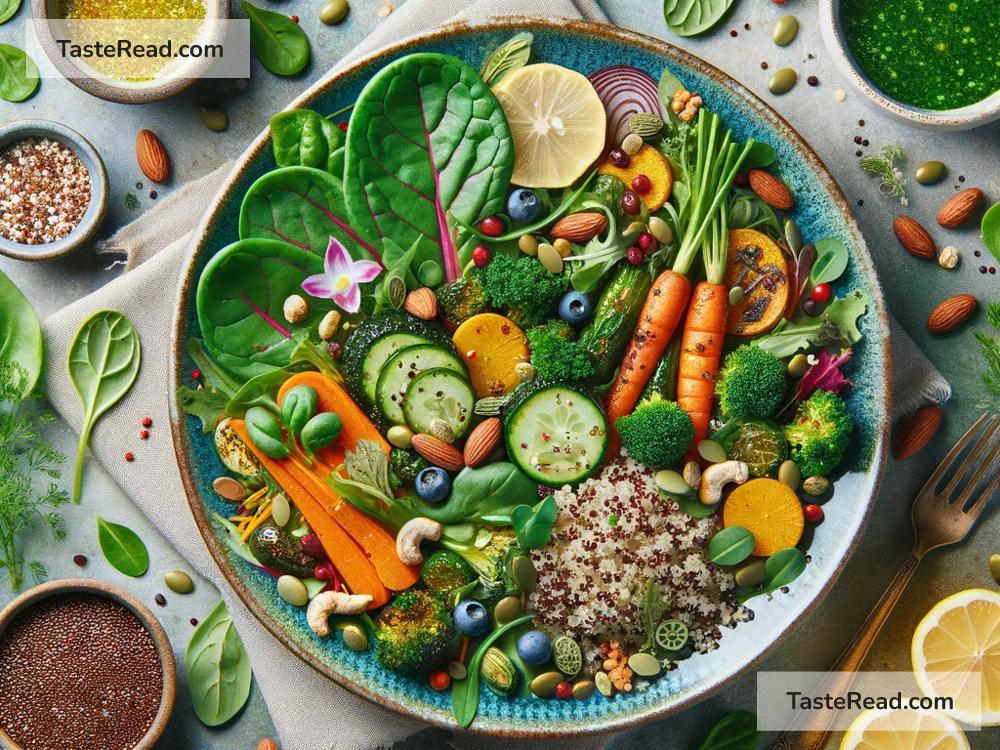How to Optimize Nutrient Absorption for Better Health
When you eat food, your body breaks it down to pull out nutrients like vitamins, minerals, proteins, fats, and carbohydrates. These nutrients are essential for energy, growth, and overall health. However, just because you eat nutrient-rich foods doesn’t mean your body absorbs everything perfectly. Some habits and factors can either help or hinder how well your body utilizes nutrients. Here’s a simple guide to optimize nutrient absorption and ensure you’re making the most of your meals.
1. Start with a Balanced Diet
The first step to better nutrient absorption is eating a mix of healthy foods. Your body needs a variety of nutrients, so focusing on only one food group isn’t helpful. Include vegetables, fruits, whole grains, lean proteins, healthy fats, and dairy (or alternatives) in your diet. The wider the variety of foods you eat, the more likely you are to cover all your nutritional bases.
2. Know Your Food Pairings
Did you know that certain nutrients are absorbed better when paired with others? For example:
– Vitamin C + Iron: If you’re eating iron-rich foods like spinach or lentils, pair them with foods high in vitamin C, such as oranges, bell peppers, or tomatoes. Vitamin C helps your body absorb iron more effectively.
– Fat-Soluble Vitamins: Vitamins A, D, E, and K need fat to be absorbed. Add a little healthy fat (like avocado, olive oil, or nuts) when eating foods rich in these vitamins, such as leafy greens or sweet potatoes.
– Calcium + Vitamin D: Vitamin D helps your body absorb calcium, which is important for strong bones. Make sure you’re getting foods rich in calcium, like dairy or almonds, alongside vitamin D sources, such as egg yolks or fortified milk.
3. Chew Your Food Thoroughly
Chewing may seem simple, but it’s often overlooked. When you chew your food well, you break it into smaller pieces, making it easier for your digestive enzymes to work. Digestion begins in your mouth, where saliva starts breaking down certain nutrients like carbohydrates. The better you chew, the more efficient your digestive system becomes.
4. Keep Your Gut Healthy
Your gut plays a big role in nutrient absorption. If your digestive system isn’t functioning well, it can impact how much nutrition you’re actually getting from your food. Here’s how to keep your gut happy:
– Eat Fiber-Rich Foods: Foods like whole grains, vegetables, and fruits promote healthy digestion and prevent constipation. This helps nutrients move smoothly through your gut.
– Include Probiotics: Probiotic-rich foods like yogurt, kefir, and fermented foods (e.g., kimchi, sauerkraut) support a healthy balance of gut bacteria. When your gut is in good shape, it can absorb nutrients better.
– Drink Enough Water: Dehydration can slow down digestion, so make sure you’re drinking enough water each day to keep everything moving.
5. Cook Foods the Right Way
How you prepare your food can affect its nutrients. Overcooking, for example, can destroy vitamins like vitamin C. On the other hand, cooking can sometimes make nutrients easier to absorb—like how cooking tomatoes increases the availability of lycopene, an antioxidant. Here are some tips:
– Steam or Sauté Vegetables: Instead of boiling veggies, try steaming or using minimal oil in a sauté. This helps preserve their nutrients.
– Eat Some Foods Raw: Foods like cucumbers, carrots, and leafy greens can be more nutrient-rich if eaten raw.
– Avoid Microwaving Plastic: If you’re reheating food, avoid microwaving it in plastic containers, as chemicals can leach into your food and impact health.
6. Don’t Skip Healthy Fats
Low-fat diets are trendy, but healthy fats are necessary for absorbing certain vitamins. Include sources of unsaturated fats, such as avocados, nuts, seeds, and olive oil, in your meals. Fats also help you stay fuller for longer, so they’re a win-win for your health and appetite.
7. Give Your Body Time to Digest
Eating in a hurry or snacking constantly can disrupt digestion. Try to eat without rushing and allow your body time to fully process your meals before reaching for another snack. This gives your digestive system a chance to absorb nutrients properly.
8. Avoid Nutrient Blockers
Certain foods or habits can interfere with nutrient absorption, such as:
– Excess Caffeine: Drinking too much coffee or tea can reduce how well your body absorbs calcium and iron. Keep those drinks moderate.
– Alcohol: Too much alcohol can damage your gut lining and stop nutrient absorption.
– Processed Foods: Junk foods are often high in empty calories rather than valuable nutrients, so limit these.
9. Manage Stress
When you’re stressed, your digestion slows down, which can negatively impact nutrient absorption. Practice relaxation techniques like deep breathing, yoga, or meditation to keep stress in check and support your body’s ability to absorb nutrients effectively.
10. Talk to Your Doctor
If you suspect you’re not absorbing nutrients well—such as noticing fatigue, brittle nails, or hair loss—it’s worth discussing with a healthcare provider. They can check for underlying issues like vitamin deficiencies, food intolerances, or gut conditions and suggest specific treatments or supplements.
Final Thoughts
Improving how your body absorbs nutrients doesn’t have to be complicated. By eating a balanced diet, choosing smart food pairings, taking care of your gut, and maintaining healthy habits, you can ensure you’re getting the most out of your meals. Remember, small changes can make a big difference in how your body feels and performs every day. Happy eating!


